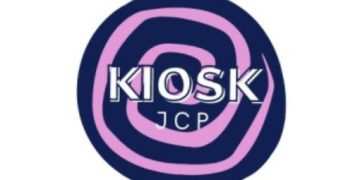If you are a resident of New Jersey, you will be pleased to know that there is a state-run health insurance marketplace that you can use to get cheaper health care coverage. This is because the federal government is allowing households to purchase subsidies on the basis of income. In addition, the Silver and Gold plans will cost less than the bronze and platinum plans, and there are also lower deductibles, copays, and out-of-pocket expenses.
Silver plans are the only type of plan that’s eligible for additional cost-sharing reduction (CSR) subsidies
Insurers that offer health plans in the Marketplace must offer silver plans that have built-in cost-sharing reduction (CSR) benefits. These benefits automatically reduce the maximum out-of-pocket limits for enrollees who meet certain income and deductible requirements.
The CSR increases the average blended value of a standard silver plan by reducing out-of-pocket limits and copayments. There are different CSR benefits for people who earn different income levels. People with an income under 200% of the federal poverty line will qualify for a higher-than-average level of CSR. People who earn less than 150% of the FPL are eligible for premium-free Silver plans.
CSRs can be found on standard silver plans but not on bronze and gold plans. Bronze plans will typically have higher out-of-pocket limits and copayments. Those with lower incomes may choose a bronze plan that has a lower premium.
Gold plans are cheaper, but have lower deductibles, copays, and out-of-pocket expenses
In New Jersey, you can receive subsidies to help you pay for your health insurance. These subsidies are available to people who qualify based on their income. You can find out if you qualify by using the GetCoveredNJ Shop and Compare Tool.
A federal subsidy is available for those who have less than 200 percent of the federal poverty level. Those who qualify can get a lower deductible, cost-sharing charges, and out-of-pocket maximum. They can also enroll in a Silver plan.
A silver plan pays 70 to 94 percent of the cost of covered medical care. It has a moderate monthly premium, but tends to have lower deductibles and out-of-pocket maximums.
The Bronze plan has the highest deductibles and out-of-pocket limits. Because of the higher deductibles, it can be more expensive to have a bronze plan than a silver one.
Subsidies are now available to households with income up to 600% of the poverty level
Households in New Jersey that are earning up to 600% of the poverty level will be eligible for state-funded subsidies in May 2021. Previously, households in this income range were not eligible for premium subsidies.
In addition to extending the period of time that subsidies are available, the state is also offering a special enrollment window. This is available to people who currently have coverage, as well as those who are uninsured. The extended window is designed to address the COVID pandemic and will help more New Jerseyans gain access to affordable health insurance.
When it comes to subsidies, there are two major categories: federal subsidies and state-funded subsidies. These subsidies are aimed at making health insurance more affordable for lower-income families. However, they are only available through the ACA Exchange.
State-run vs federally-run
The Affordable Care Act (ACA) has required that states establish an insurance marketplace to sell health insurance plans to individuals. Depending on their political and economic situation, states could opt not to set up their own marketplace, or they could opt to partner with the federal government to do so. Whether or not the federal government or state governments are better suited to run the marketplace is an important decision that affects all New Jerseyans.
A state-run marketplace offers many benefits, including more control over enrollment deadlines and marketing campaigns. These states also offer more options for financial assistance to qualified applicants. For example, New Jersey has invested millions of dollars in the Navigator program to assist people in enrolling in coverage.
OMNIA Alliance lawsuit
OMNIA Alliance is a healthcare venture of Horizon Blue Cross Blue Shield of New Jersey, the state’s largest health insurer. It has a tiered network plan that ensures consumers will receive affordable, quality health care.
The OMNIA alliance includes Hackensack Meridian Health, RWJBarnabas Health, and seven large hospitals in New Jersey. Thousands of previously uninsured New Jerseyans now have access to the OMNIA plan, which has reduced premiums by as much as 15%.
During open enrollment for the OMNIA plans, consumers saved an average of 15% in premiums. OMNIA’s plans had lower deductibles and copays than other Horizon plans.
Horizon claimed the OMNIA health plan was the answer to skyrocketing costs in the health care market. The new plans were based on patient outcomes. But hospitals in the Tier 2 network said the new plan had little to do with value and was instead designed to reward larger health care providers. They argued that a Tier 2 hospital can’t compete with the buying power of big chains.




















































